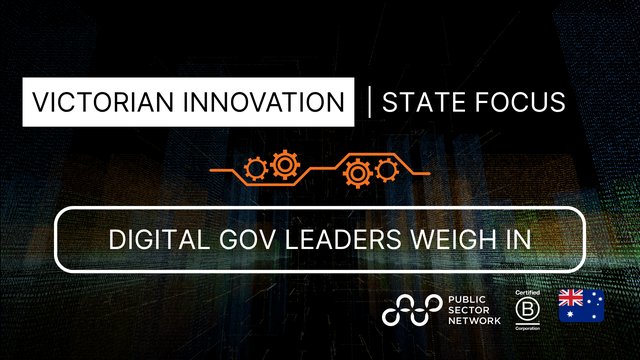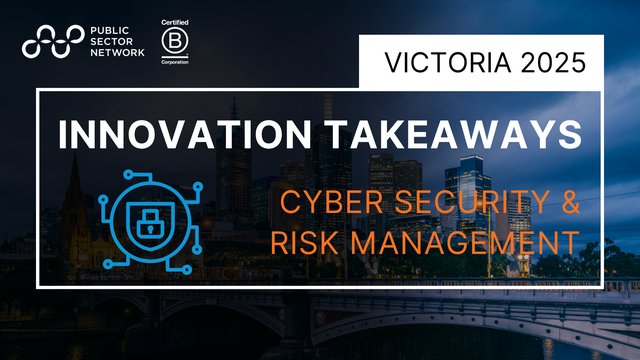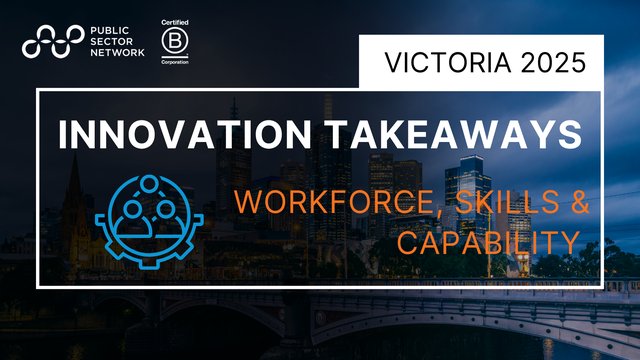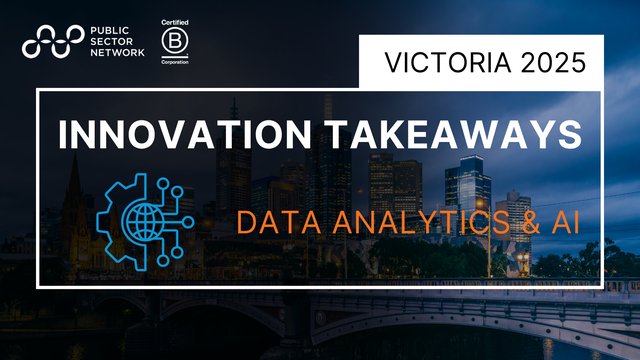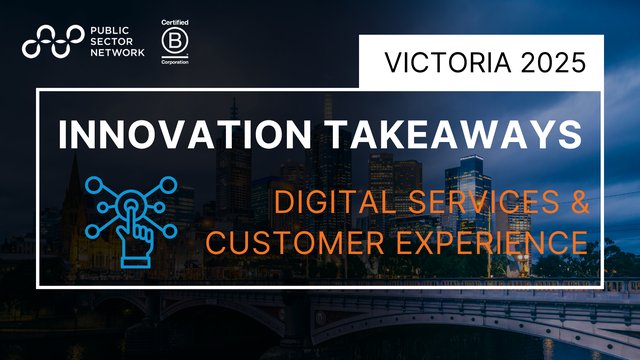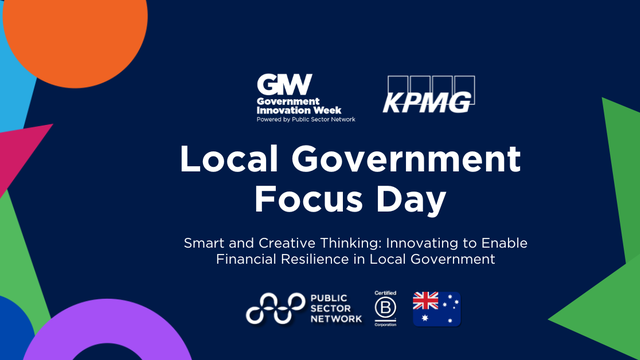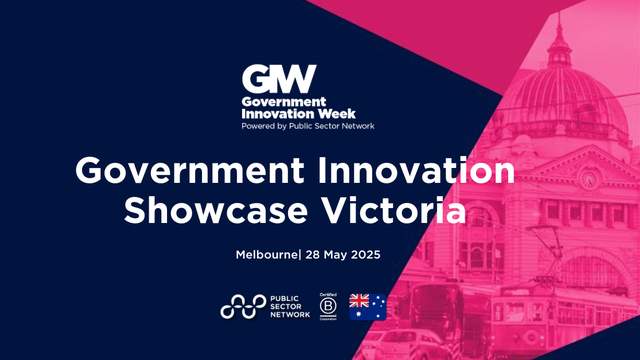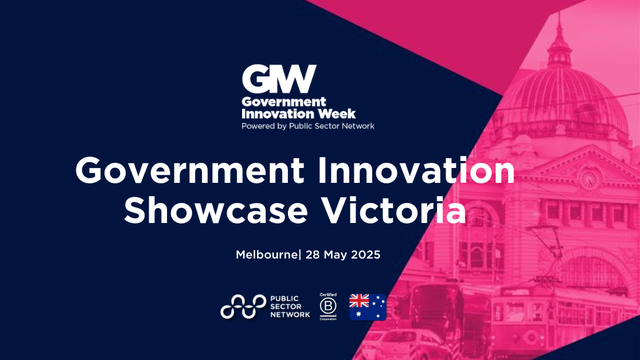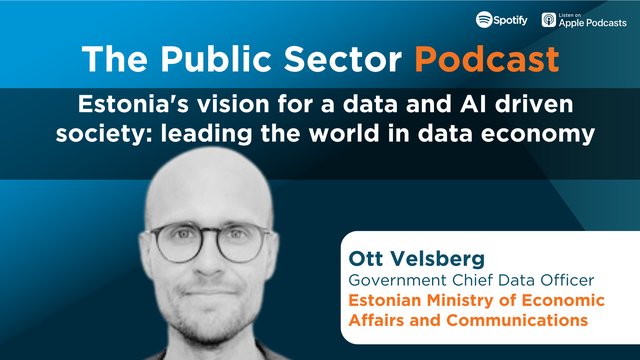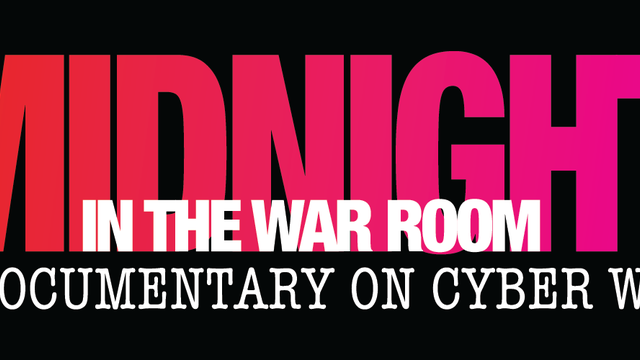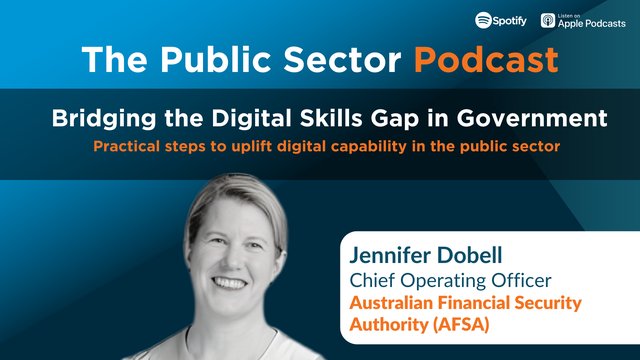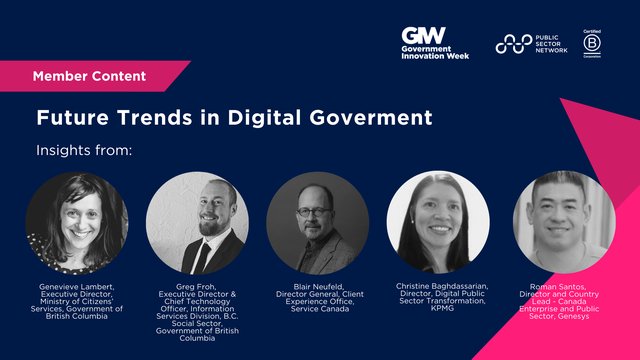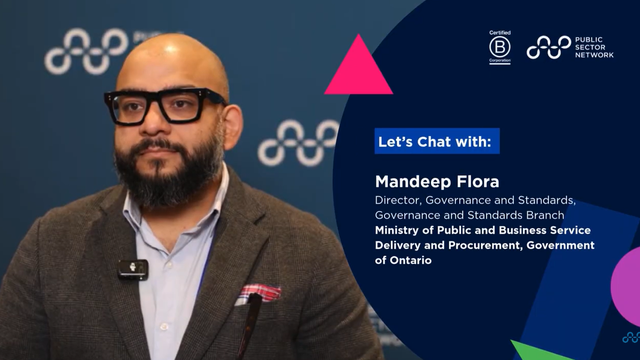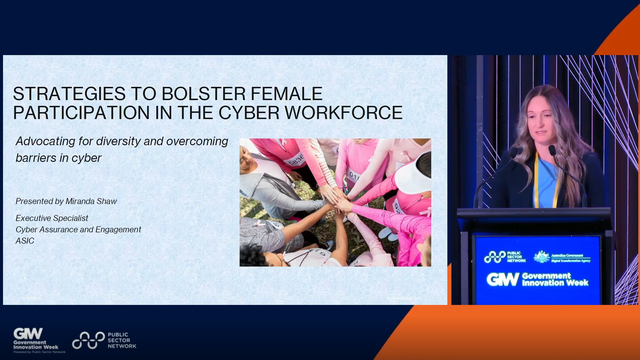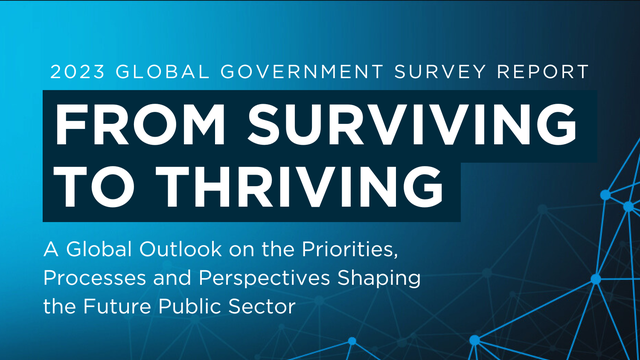
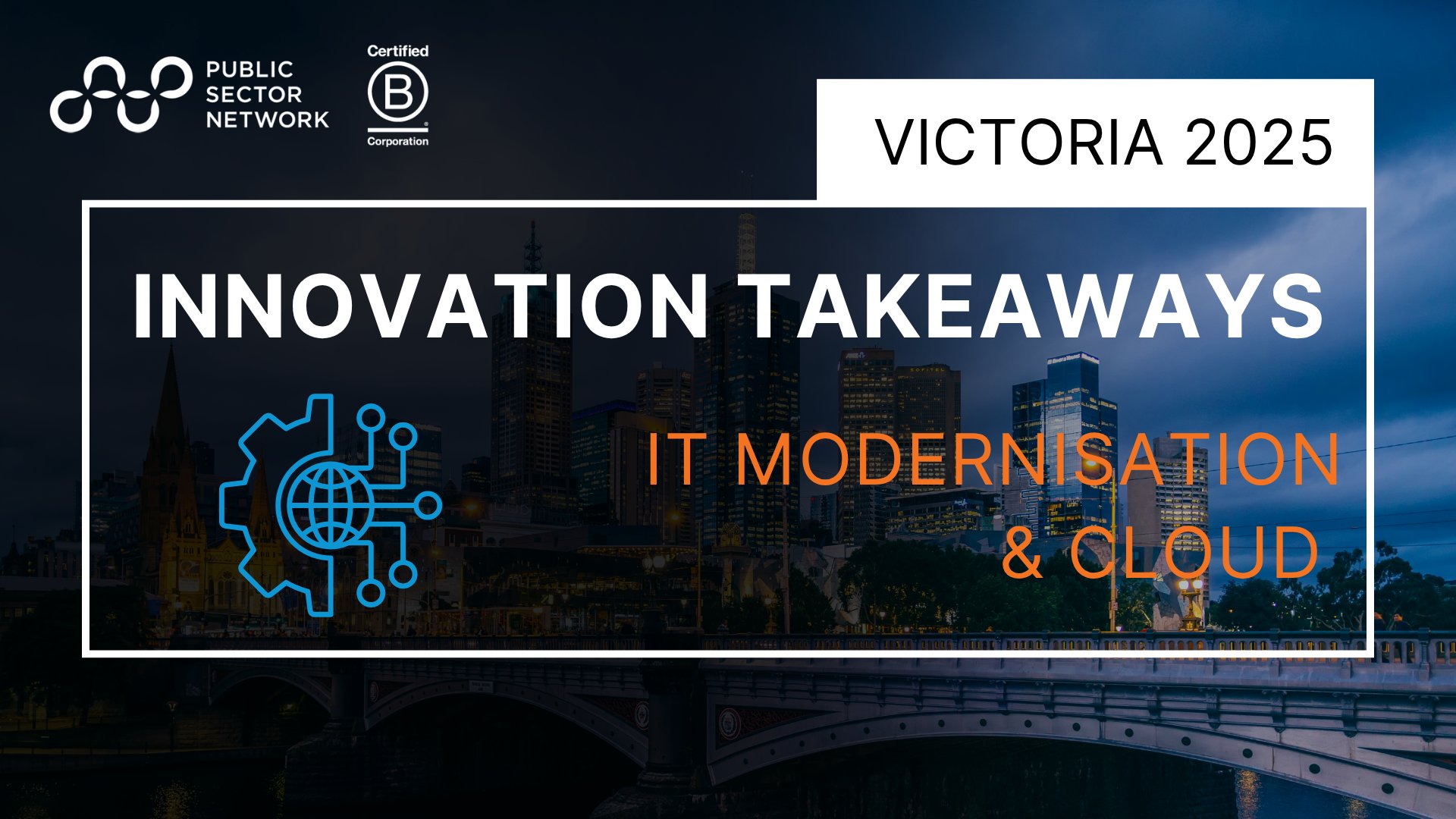
Platform+Agile: A Smarter Approach to Modernising Citizen Services
Dr Steve Hodgkinson, Chief Digital Officer, Victoria Police
Richard Davies, Director Strategic Customers APAC, OutSystems
Low-code platforms can unlock real productivity and agility in government.
OutSystems positions itself as a “blank canvas” platform that acts as a unifying layer between legacy and manual systems. Dr Steve’s experience with Victoria Police’s ePINS project illustrates this in practice—delivering a major digital transformation in just nine months after a decade of stagnation. Low-code platforms offer a fast, cost-efficient path to delivery without requiring complete system overhauls.‘Platform plus Agile’ is a sustainable model for continuous innovation.
Steve’s philosophy hinges on combining a robust, reusable digital foundation with agile delivery methods. This means moving away from bespoke, one-off projects and instead building modular, interoperable components. It enables faster delivery, reduced integration friction, and better long-term return on investment. For agencies, this is a roadmap for doing more with less—especially in constrained funding environments.The key to digital momentum is cumulative delivery, not isolated projects.
By treating each new application as both a business solution and an opportunity to expand the organisation’s digital capability, VicPol is building a portfolio of interoperable tools. The result is regained “digital mojo”—confidence in delivery, user-friendly apps for frontline staff, and a scalable model for future transformation. For leaders, this reinforces the value of combining vision, procurement savvy, and iterative delivery to sustain change.
What Role Can Startups Play in Public Sector Innovation?
Puji Fernando, Chief Operating Officer, LaunchVic
Marika Wanklyn, Senior Manager, Innovation and Sector Development | Renewable Energy Activation and Development Branch, Department of Energy, Environment and Climate Action
Rob Brimblecombe, Co-Founder, n0de
Civic Labs creates rare, high-impact collaborations between startups and government to solve public challenges.
The program enables public sector teams to co-design challenge statements with LaunchVic and work directly with startup cohorts to co-develop scalable solutions. From energy digitisation to open data integration, Civic Labs acts as a bridge between emerging tech and government problems. Marika highlighted its policy-shaping value: real-time, applied learning from startups enables departments to iterate policy settings based on market-ready innovations—often uncovering issues (like difficulties implementing Consumer Data Right) that would otherwise remain invisible.For startups, Civic Labs is a credibility accelerator and a crash-test site for scaling ideas.
Rob shared how the program helped transform their idea into a viable product by providing not only seed funding and departmental access, but also tough, honest feedback and a supportive network. Importantly, the partnership gave them the credibility to later engage with businesses and public sector partners. Even when technical integrations (like CDR) failed, the program offered the space to quickly pivot, find new value propositions, and build an adaptable business model.Enduring impact comes from relationship-building and learning to navigate government at speed.
Participants acknowledged that the pace mismatch between startup urgency and post-program government procurement remains a challenge. However, exposure to real-world constraints (e.g., policy complexity, procurement hurdles, institutional risk aversion) is part of the learning journey. Civic Labs doesn’t just accelerate individual startups—it fosters an innovation mindset across government, helping policymakers consider non-regulatory pathways (e.g., market solutions or behavioural nudges) to solve complex issues. For startups, access to these networks and first-hand understanding of public service targets and constraints creates long-term strategic value—even if immediate procurement isn't achieved.
Transform Data into Actionable Insights to Improve Citizen Experience
Brandon Voight, Director of Public Sector, OpenText
Four strategic priorities are shaping information management across Victoria’s public sector.
Brandon outlined OpenText’s 12–18 month roadmap focusing on:Compliance and Regulation – Helping agencies adapt to evolving legislative frameworks (e.g., GDPR, FOI, Privacy Act) by managing information across its full lifecycle, from capture to use.
Unstructured Data & Data Silos – With over 1 billion GB created daily, public agencies must understand what data they have, where it resides, and how to action it—especially sensitive or redundant material. OpenText’s tools dive into content (not just metadata) and automate classification, deletion, or compliance workflows.
Legacy Systems and Skills Shortages – As older public servants retire, agencies risk losing operational knowledge tied to legacy systems (e.g., Lotus Notes, PeopleSoft). OpenText enables secure migration and interface modernisation without needing full app replacement.
Disconnected Communication and Poor CX – Governments need scalable tools to deliver personalised, timely, multichannel communication (e.g., rate changes, benefits letters). OpenText’s platforms are already used by major Australian banks and government agencies to deliver contextual, automated outreach.
Data actionability, not just analytics, is the true differentiator.
Unlike tools that only analyse data, OpenText enables agencies to act on what’s found—automating deletion, retention, or risk review. A compelling example came from the Queensland Museum, which uncovered lost files and sensitive data (including illegally shared Game of Thrones episodes), and is now using OpenText to identify Indigenous-related records—a task previously deemed unmanageable.AI must be secure, trusted, and organisationally bounded.
Brandon distinguished OpenText’s Aviator AI suite from public copilots: it runs strictly on vetted internal data—not web-sourced content—making it safe for sensitive government use. With 180+ digital agents already deployed, Aviator can assist with legal analysis, policy review, and operational decision-making while maintaining regulatory integrity.Information and people are government’s greatest assets—and both depend on robust information management.
Brandon emphasised that sustainable AI and digital service delivery starts with managing data well. Tools that simply “store” or “analyse” are no longer sufficient—governments must integrate governance, insight, automation, and communication to unlock value and trust.
From Legacy Systems to AI Enabled Technology | Victorian Public Sector’s Technology Transformation Journey
Rodney Apostol, Chief Information Officer, Victorian Ombudsman
Emily Mailes, Chief eHealth Strategy Officer, Victorian Department of Health
Victoria’s health digital transformation is prioritising a leapfrog approach over legacy system replacement.
Rather than investing in costly, monolithic platform overhauls as seen in other states, Victoria is pursuing a modular, platform-of-care model. The strategy balances tactical short-term fixes with a long-term goal of enabling interoperability and innovation. The state is focusing on scalable pilots, especially where AI can improve outcomes without requiring high-risk, full-system integrations. Emily highlighted that health’s fiscal constraints are catalysing more agile and adaptive digital planning.AI adoption in health must start with problem-first thinking, not technology-first solutions.
While there’s excitement around AI’s potential to address workforce shortages, improve diagnostics, and increase efficiency, the Department of Health is deliberately focusing on solving specific, high-impact problems rather than rushing broad implementations. Use cases are being triaged by their risk profile—from low-stakes administrative support (e.g. finding HR policies) to high-stakes clinical tasks (e.g. AI-assisted radiology). A mature, measured approach is key to managing the tension between innovation and safety.Governance, risk tolerance, and information security are evolving alongside implementation.
AI governance is still in development, but the department is working to set state-wide standards while providing enabling infrastructure (e.g. centralised AI governance platforms) that local health services can use. Emily acknowledged the paradox of AI being simultaneously high-risk and widely adopted informally (e.g. patients using ChatGPT), calling for a nuanced balance between safety and responsiveness. Unlike legacy cybersecurity, AI risk lacks fully developed frameworks, but Victoria is aiming to build policies that are practical and fundable—not just aspirational.
International Keynote: Designing Japan’s Digital Policies from Next Generation Japanese Citizens Globally
Chikako Masuda, Head of Intelligence Research, Digital Agency, Government of Japan
Japan is modernising its rigid bureaucracy through a dedicated Digital Agency focused on citizen-centred services.
Established in 2021 after COVID-19 exposed deep digital inefficiencies, Japan’s Digital Agency reports directly to the Prime Minister and operates with a unique mandate: to reform legacy systems, streamline public service delivery, and allocate digital investment across ministries. Its initiatives include the rollout of My Number, a voluntary smart ID card integrated with health, tax, and identity services, now used by over 72 million citizens. Digital identification apps, mobile integration, and universal service access through the Minor Portal mark major steps in redesigning government to be faster, simpler, and user-centric.Legacy laws and analogue regulation are key barriers to reform—but Japan is actively dismantling them.
Japan’s analogue-era requirements—face-to-face checks, paper-based verification, and manual inspections—were found to be obstructing digital progress and estimated to cost the economy trillions of yen. In response, the agency audited 6,400 such regulations and successfully modernised over 4,300. To futureproof this effort, tools like the Technology Map and Technology Catalogue are used to guide regulators in adopting appropriate modern solutions. This legal innovation is considered as critical to transformation as technology itself.Digital transformation is being reframed as a collaborative, community-driven national project.
Japan’s approach recognises that effective digital government is not merely technical—it’s social. The Digital Agency functions as a hub that unites civil servants, technologists, designers, and students to co-create policies and services. Projects like the Evidence-Based Policy Dashboard enable real-time transparency and cross-departmental collaboration. The agency also engages students from institutions like Harvard and Oxford to support policy research, embedding diverse, intergenerational perspectives in reform efforts. The emphasis is not just on success stories but also on openly sharing failures and lessons—positioning Japan as a learning partner in digital governance globally.

